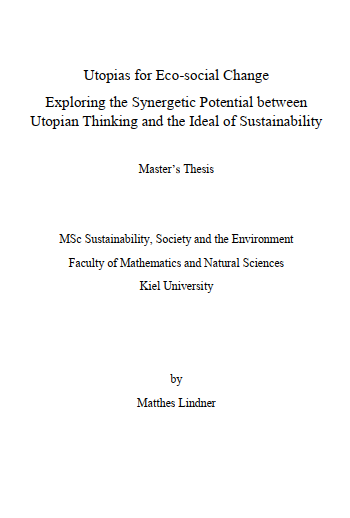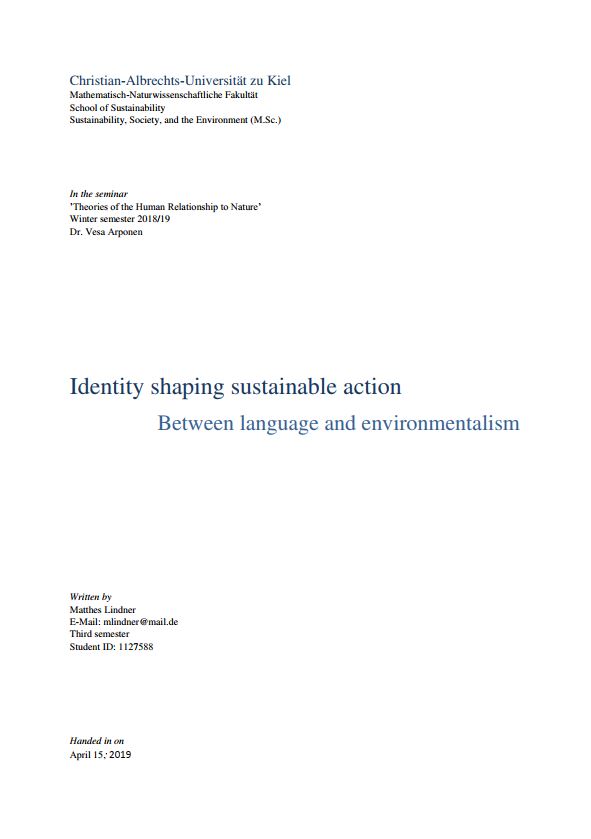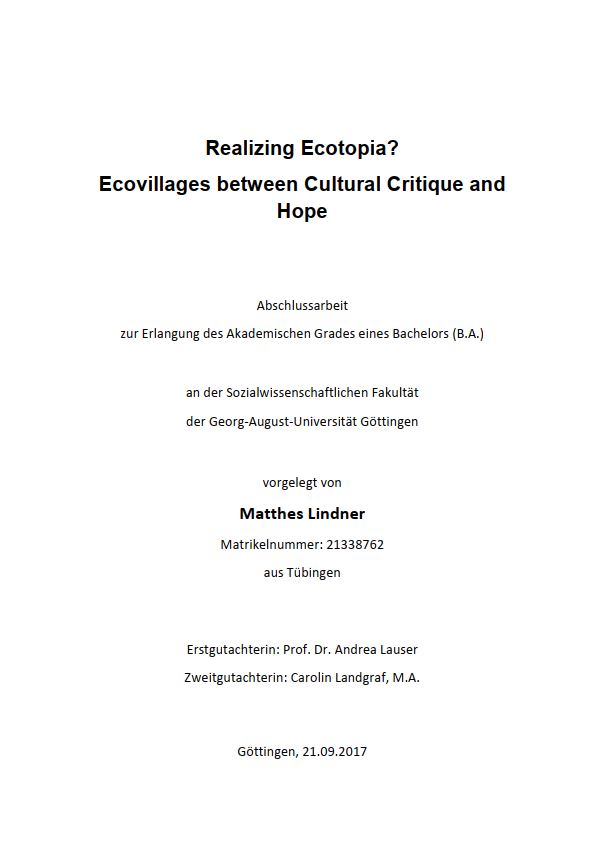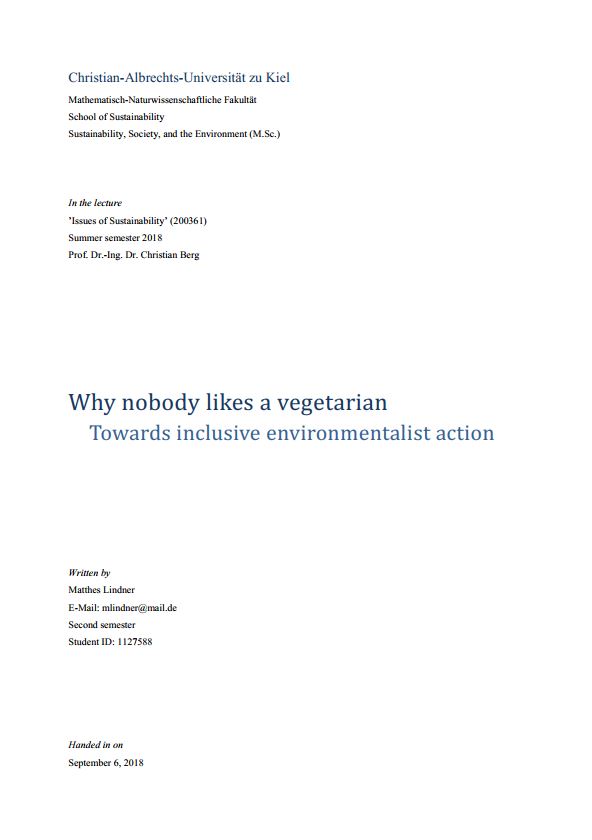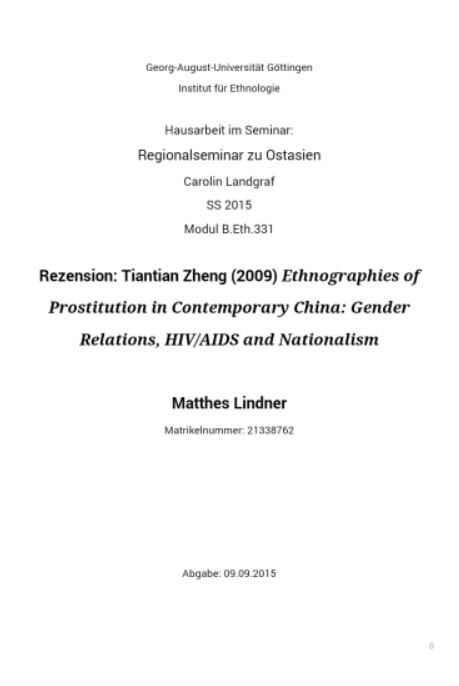Research Interests
Utopias have become a bit of a recurring theme in my academic career: I first worked with the idea when conducting research on intentional eco-communities during my Anthropology undergrad and have recently picked up on them again as a potential framework for a better dealing with the fluent and clumsy concept of sustainability.
Thinking about desirable futures has also spread into side projects, like my podcast, and has proven to be a topic I want to engage with more – both academically and creatively.
What actually stands in the way of global sustainable development? Is there some form of actionable advice we can give to facilitate a transition towards a more sustainable world?
The more I studied and taught issues of sustainability the more complicated the answers to these questions have become and today I believe that – as with most things in life – the issue of sustainability is something that is immensely nuanced and difficult to provide concrete answers for.
To me, Barriers & Principles of Sustainability as a research interests thus describes a holistic, transdisciplinary perspective on the beliefs, actions, decisions, and structures in our lives that connect to the ideal of sustainability.
How should we communicate issues related to the ideal of sustainability? What sort of narratives, tools, stages and media make sense – both from ethical as well as pragmatic standpoints?
I have devoted a major part of my graduate studies to both research these questions from a theoretical perspective (e.g. how in- or exclusive current environmentalist activism is; see paper), and a pragmatic side by prototyping different forms of interventions in the context of a eco-social change project.
I regard ecolinguistics as one of the most exciting fields I had the fortune of accidentally exploring! Ecolinguistics – as defined by Arran Stibbe – explore the stories we live by, particularly in regards to our natural environment. It’s less about the researcher’s opinion of what a current societal trend is, but about what society tells itself about what is going on. To me, it’s mindblowingly exciting!
One fascinating node of ecolinguistics is how the stories we tell ourselves influence our identity and vice-versa – and how this relationship in turn influences our actual behavior when it comes to geopolitical issues.
Ecovillages have been on my radar ever since I started my undergraduate degree. And I was fortunate to find a mentor in my later semesters of studying Social and Cultural Anthropology who supported my research on these interesting cultural constellations. Intentional communities and ecovillages are both this immensely fascinating contemporary construction of a particularly consequent kind of counter culture and important spaces for transformation pioneers to prototype their reconceptualizations of how the world should work and life should feel.
Intentional communities and ecovillages also strongly connect to Utopianism (and Ecotopianism). Hence, my bachelor thesis that is based on field research in Southeast India addresses both these fields in their interrelations.
Why does a “healthy look” vary so strongly from place to place? Why do men in China refuse to wear condoms? Why do you see teens in Mumbai making out on the city highways?
Personal health, sexuality, concepts of love and relationships are interesting windows into the inner workings of any given place and often strike at the heart of people’s ideas for a good life and their everyday anxieties at the same time. They are issues I always come back to when exploring a new space and that keep surprising me with exciting new conversations and findings.
I grew up the son of two pastors and while I did not quite inherit their beliefs, I continue to be fascinated by how religion and rituals shape people’s realities and cultural landscapes. During my undergraduate I took religious studies as my minor and while I found myself in a whole colorful bunch of classes on different religious traditions, I particularly devoted second glances and the occasional paper on Indian religions and Buddhism.
To this day, consensual interreligious encounters and conversations excite me tremendously, and I continue to enjoy learning from people about their rituals and beliefs.

